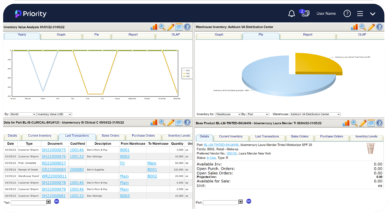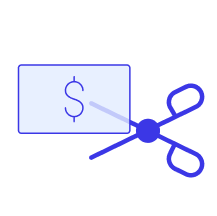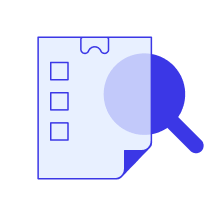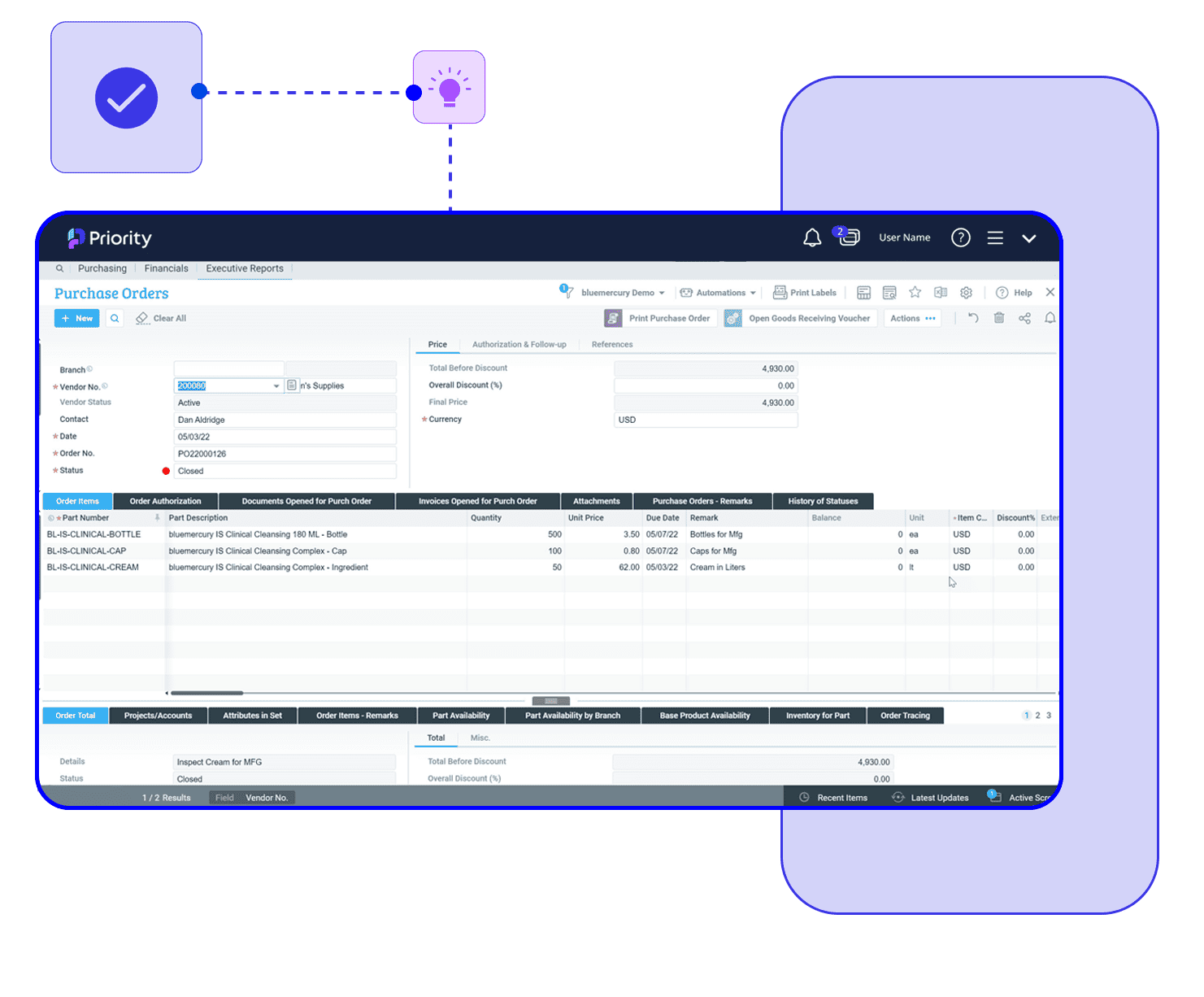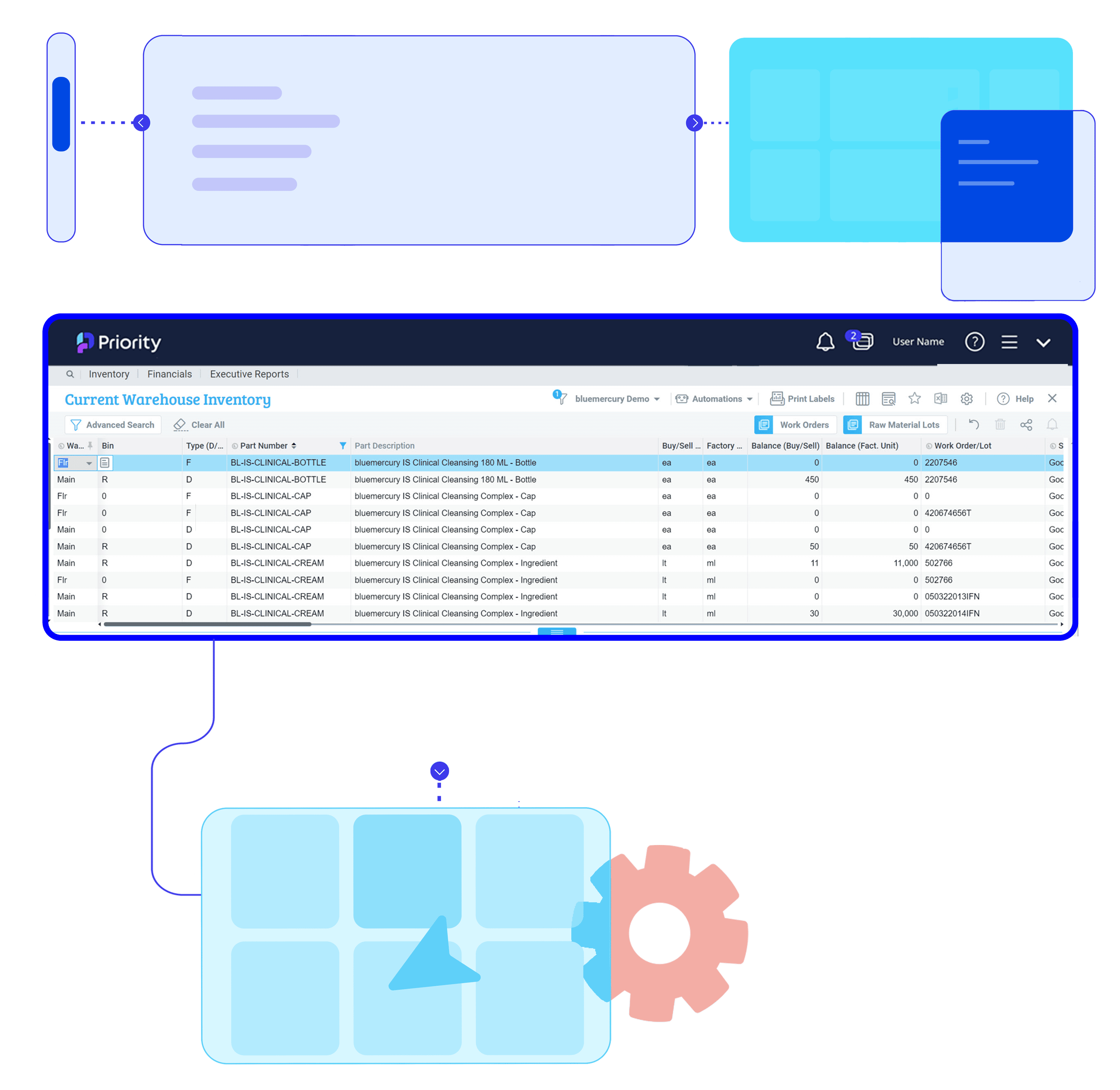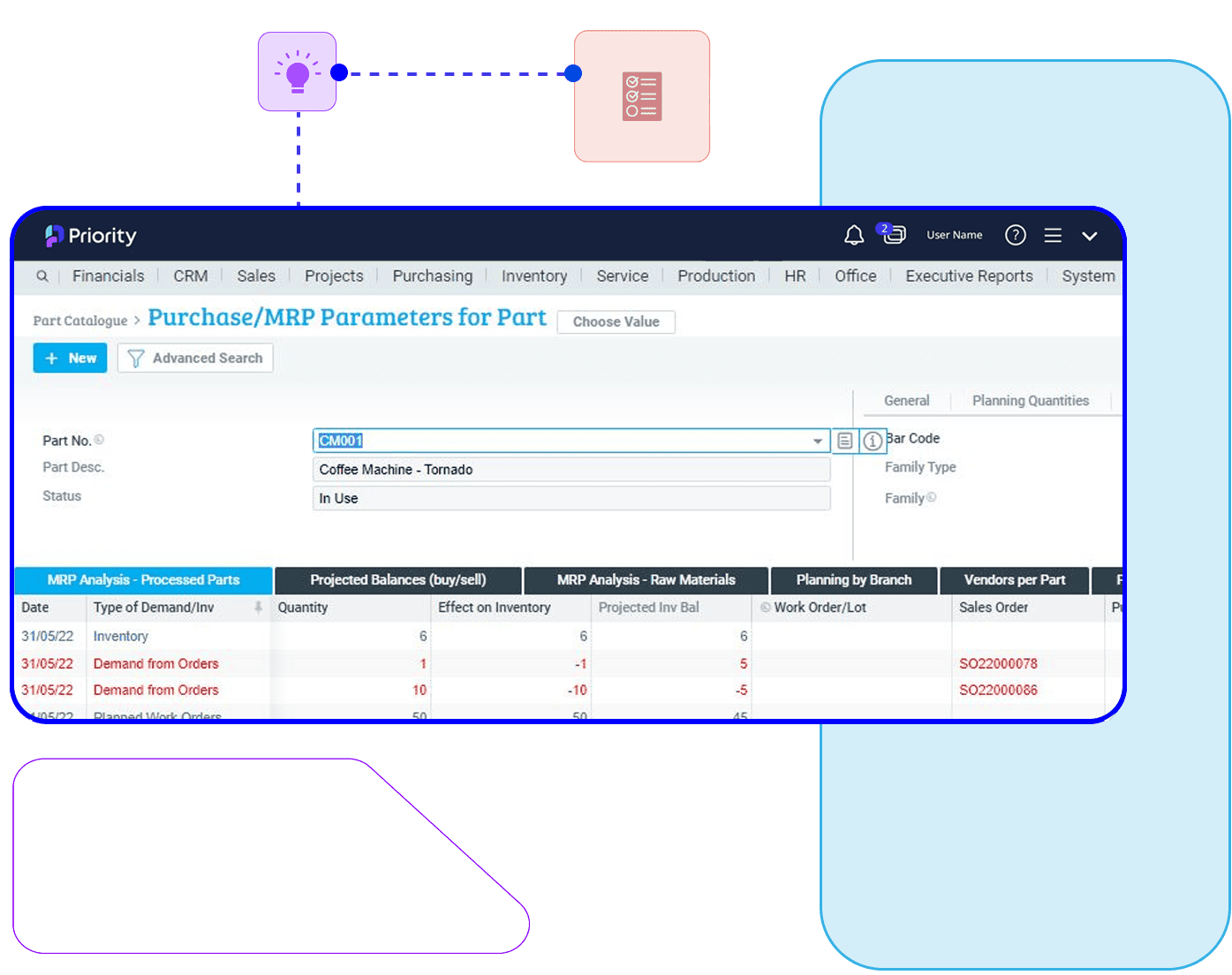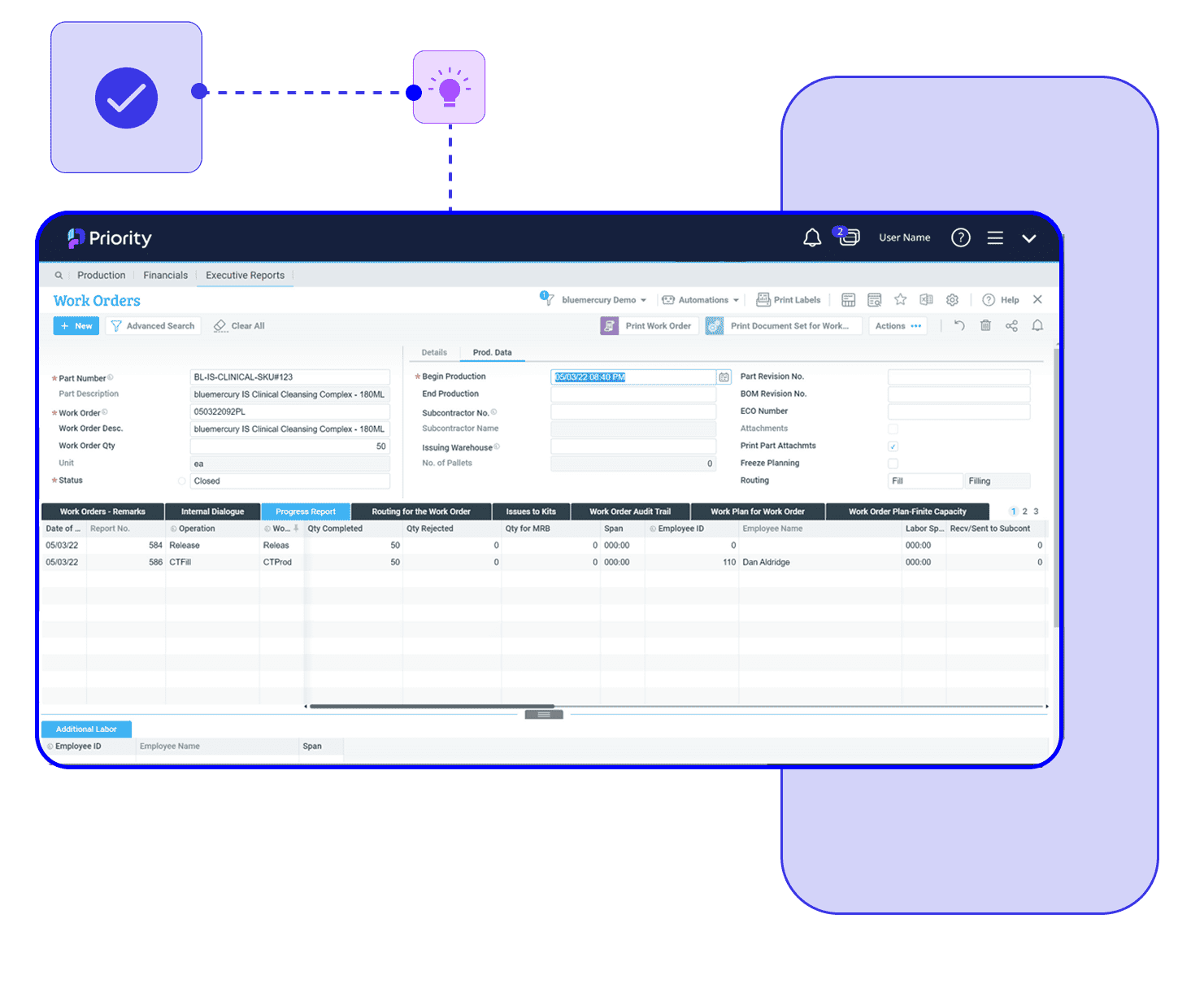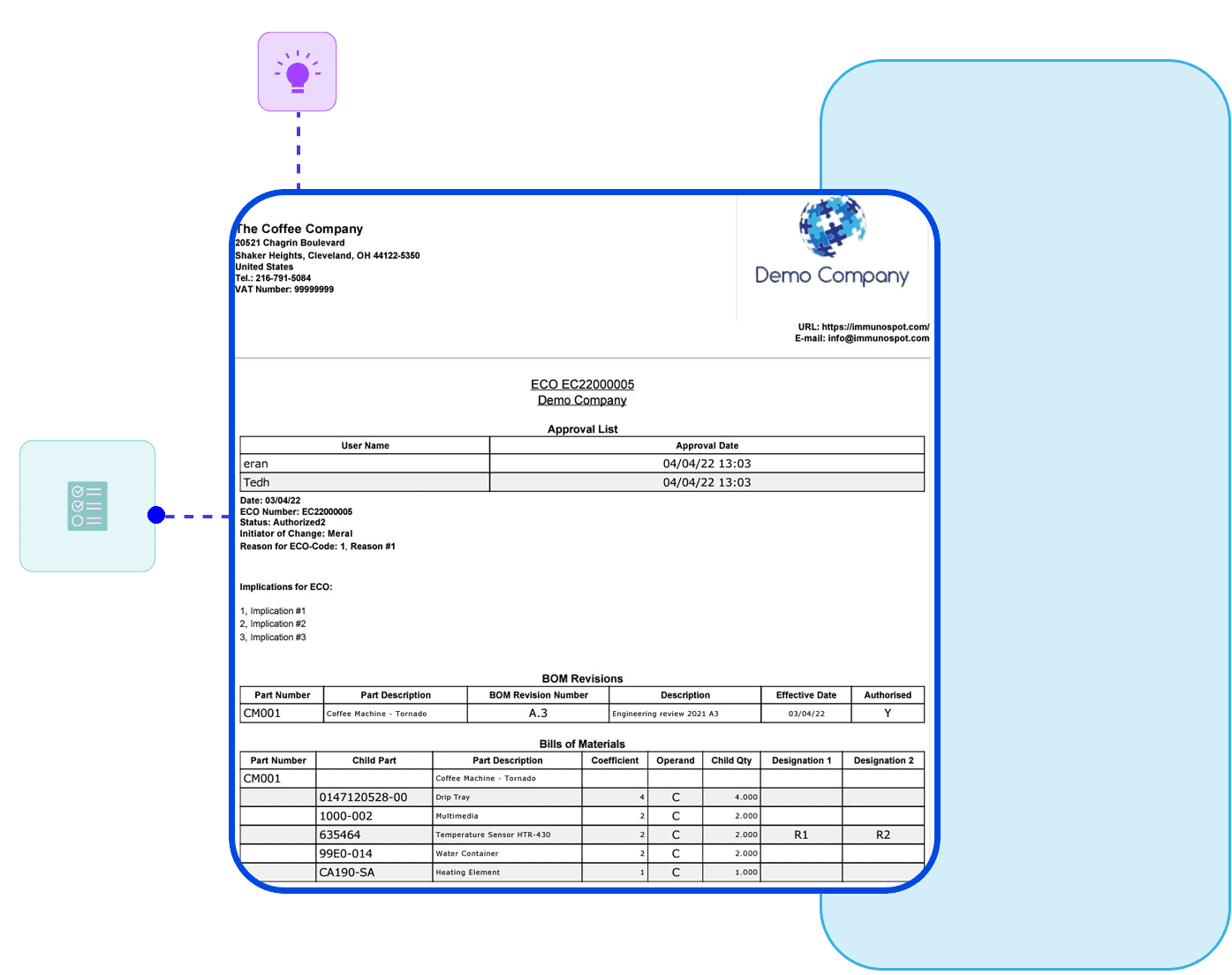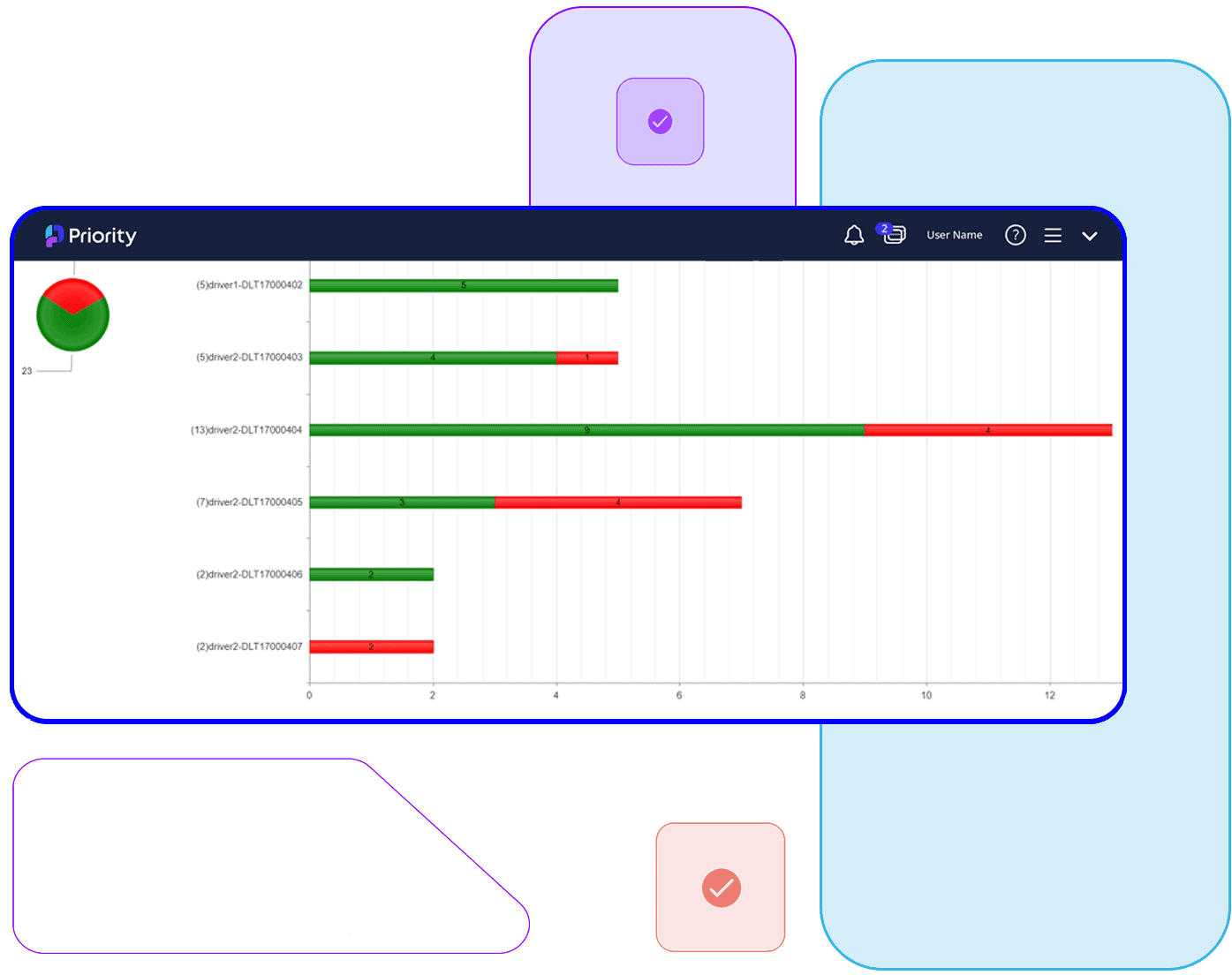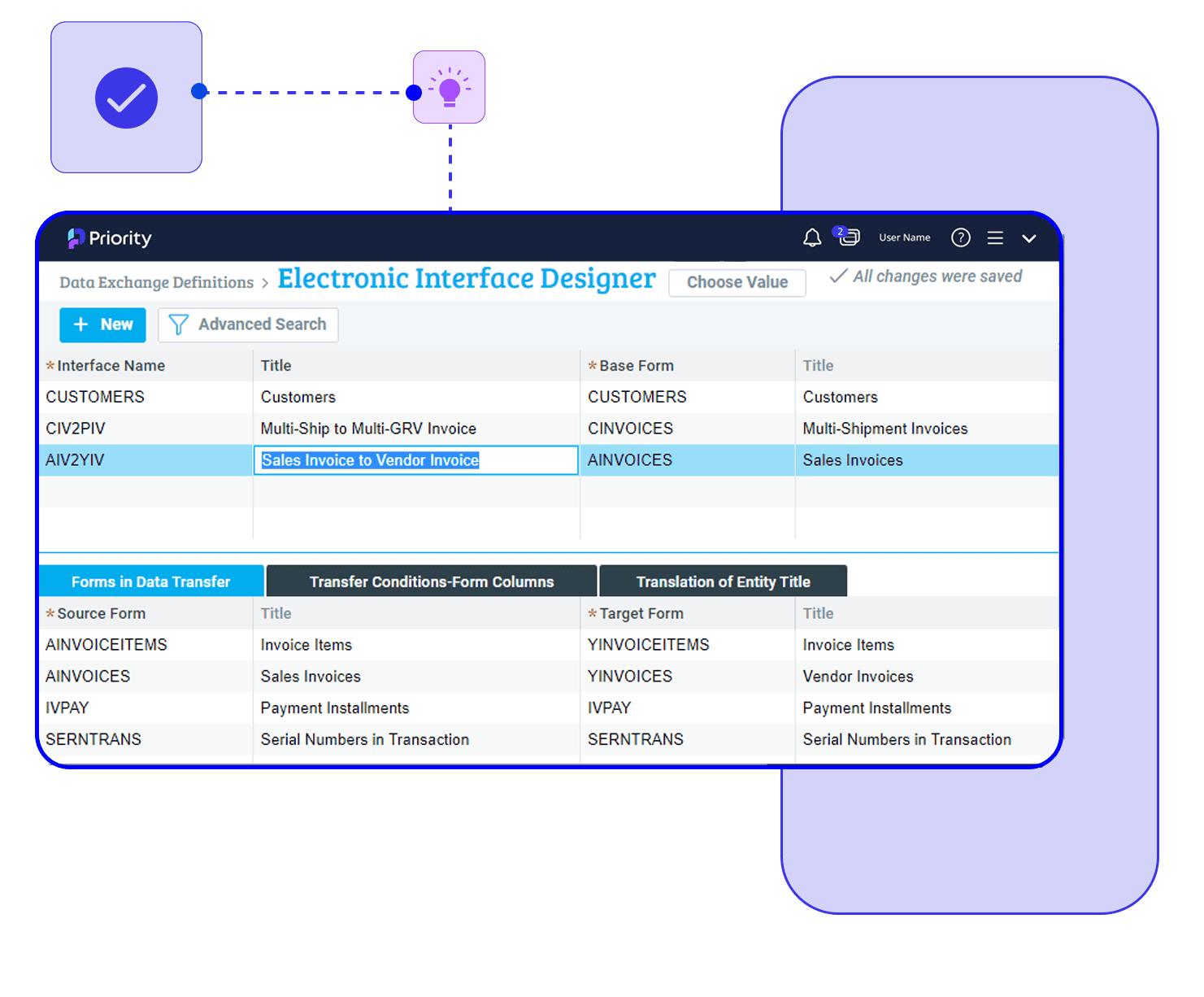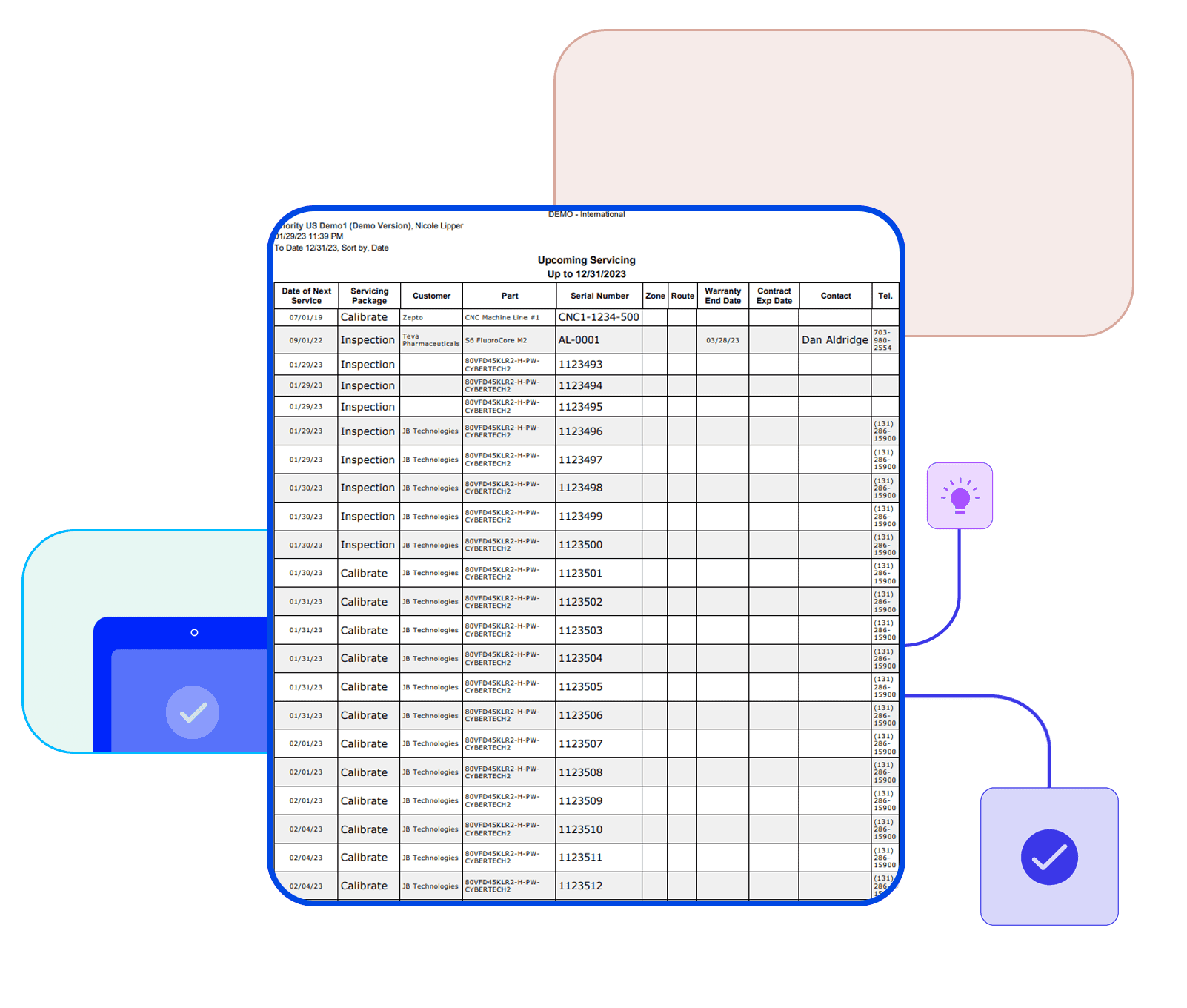Streamline supply chain operations from warehouse to doorstep
With Priority’s supply chain management ERP software, you take control and optimize every aspect of your supply chain process. From raw materials, inventory management, and quality control to shipping and last-mile delivery, with this powerful solution, you can streamline each stage of the supply cycle, ensuring maximum efficiency and customer satisfaction across all channels.
See how Priority works for you.
Key features
Inventory Management
Efficiently manage your product lifecycle with real-time data analysis, inventory control, and order fulfillment to meet current and future needs. This includes minimizing excess stock, maintaining adequate stock levels to improve service, and handling part management, BOM, inventory and cycle counts, label printing, warehouse control, inventory transactions, and delivery tracking with unlimited warehouses and bins.
Material Requirements Planning (MRP)
Optimize stock levels and meet time-to-market demands with accurate purchasing and production processes across all facilities. Automatically calculate required quantities based on various data sources, including forecasts, orders, safety stock, current stock, lead time, and WIP, and receive system recommendations to increase customer satisfaction.
Production Control
Digitize the production process and gain complete control, visibility, and traceability over your processes, from materials issuance and work-in-progress management to finished goods reporting and subcontractor processes. Utilize smart IoT tools to capture accurate online data directly from the production floor to the system.
Engineering Change Orders
Efficiently manage engineering changes to parts and BOMs, document change details and dates, and control product implications for improved management of internal processes that affect the product lifespan. The ECO integrates part, and BOM revisions with engineering changes, tracking revisions affected by the change and work orders opened accordingly.
FAQ’s
Is SCM a part of ERP?
Yes, SCM (Supply Chain Management) is often a part of ERP systems. While ERP encompasses a broader range of business functions, including finance, HR, sales, and more, SCM is a specialized module within ERP that focuses on managing the supply chain processes. SCM within ERP streamlines the flow of goods, services, and information across the entire supply chain, from sourcing raw materials to delivering finished products to customers. It optimizes inventory management, procurement, production planning, logistics, and distribution, enhancing the efficiency and coordination of supply chain operations. By integrating SCM with other ERP modules, businesses gain a comprehensive view of their supply chain activities, allowing for data-driven decision-making and improved responsiveness to market demands and customer needs.
Can SCM ERP handle multi-location and global supply chain operations?
Yes, SCM ERP systems are designed to handle multi-location and global supply chain operations. These systems provide the necessary tools and functionalities to manage complex supply chains that span across multiple locations and countries. SCM ERP enables businesses to optimize inventory levels across various warehouses or distribution centers, ensuring efficient stock management and timely order fulfillment. It supports multi-currency transactions, allowing organizations to conduct global procurement and sales operations in different currencies. Additionally, SCM ERP facilitates collaboration and communication among different supply chain stakeholders, ensuring seamless coordination and visibility across the entire supply chain network. With its multi-location and global capabilities, SCM ERP empowers businesses to streamline supply chain operations, improve logistics, and respond effectively to the demands of a global market.
Does SCM ERP support real-time tracking of shipments and order status?
Yes, SCM ERP systems support real-time tracking of shipments and order status. These systems integrate with various logistics and transportation platforms to provide real-time visibility into the movement of goods throughout the supply chain. From the moment an order is placed, SCM ERP enables businesses to track its status, including processing, packing, shipping, and delivery. Real-time tracking of shipments allows organizations to monitor their supply chain activities closely, identify potential delays or issues, and proactively address them to ensure on-time delivery to customers. This visibility helps enhance customer satisfaction, optimize inventory management, and improve overall supply chain efficiency, making SCM ERP a valuable tool for businesses aiming to maintain a competitive edge in their logistics operations.
Can SCM ERP integrate with external logistics and transportation providers?
Yes, SCM ERP systems are designed to integrate with external logistics and transportation providers. These integrations enable seamless data exchange and collaboration between the SCM ERP system and third-party logistics partners, such as shipping carriers, freight forwarders, and transportation companies. SCM ERP can communicate shipment details, order status, and delivery instructions to external providers, while receiving real-time updates on shipment tracking and status. This integration streamlines the flow of information and allows businesses to have a comprehensive view of their supply chain, enhancing coordination, efficiency, and visibility throughout the logistics process. By leveraging external logistics and transportation data within the SCM ERP system, organizations can optimize their supply chain operations, improve customer service, and make data-driven decisions for better supply chain management.
Is SCM ERP easy to learn?
The ease of learning SCM ERP depends on various factors, including the specific ERP system, the user's prior experience with ERP software, and the complexity of the organization's supply chain processes. Generally, SCM ERP systems are designed to be user-friendly, with intuitive interfaces and workflows. Training and documentation provided by the ERP vendor can also help users quickly grasp the functionalities of the system. However, due to the comprehensive nature of SCM ERP, some users may require more time to fully understand and utilize all features effectively. Overall, the learning curve can vary, but with proper training and support, users can become proficient in using SCM ERP to optimize their supply chain operations.
What is a real world business example of ERP supply chain management in action?
Back in 2006. David Storey, the Managing Director of Trutex Ltd., recognized the need for a new IT system to help them overcome challenges related to un-integrated data used to manage the same pool of stock for their three lines of business: wholesale, retail, and on line. Consequently, inventory had to be segregated between the systems leading to massive inefficiencies, over-stocking in some areas and shortage in others. In addition, a vast amount of time and resources were spent on manual processes such as mailing invoices, statements and order confirmations, affecting productivity and efficiency. The inefficiencies in inventory and poor stock control equated to poor customer satisfaction, loss of business, and lack of control over the company’s financial resources. Priority delivered a fully integrated ERP solution and an advanced Warehouse Management System that facilitates advanced automation features, and provides visibility across all key areas of the business and helps streamline all departments and processes. Priority ERP provided accurate costing information for each product using the comprehensive part parameter matrix facility. It provided the ability to manage demand across all elements of the supply chain, automate orders management, improve customer satisfaction, lower inventory values and plan purchases to maximize cash flow and profitability. Among other results, Priority’s WMS helped Trutex automate its supply chain processes and achieve complete control over the entire order, procurement, supply, delivery, invoice, and payment process. The advanced wireless handheld barcode devices, enabled highly automated picking processes.

